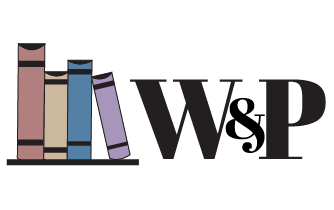What I’ve learned in one year of freelance editing
Your first year of freelancing can be a lot—I know mine definitely was! Even though I’m only freelancing part time, I’ve achieved so much more than I thought I could, and I can’t wait to see what the future brings. To reflect, here are a few things I’ve learned in my first year as a freelance editor that might help you in your editing journey.
Every job is different, so you need to approach them differently.
This sounds obvious, but after a few unorganized jobs, you might be tempted to save yourself some time and headaches by standardizing your edits. And while it’s great to have onboarding and offboarding checklists for your workflow so that you don’t skip any steps, every job is its own beast. You can’t create a cookie-cutter editing service that will work for every job. I offer four levels of editing (editorial assessment, developmental, line, and copyediting), but most of my jobs involve custom rates and combinations of services.
Each author has their own publishing goals and needs, which means personalized editing to reach those goals. While it’s nice to have some standardization in what is involved in each level of editing, you need to adjust your editing lens for each job. But that’s a good thing! It means you’re constantly learning and evolving and serving your authors well. This is also why it’s a great idea to clarify your authors’ pain points and editing concerns before you start working.
Fees are part of freelancing.
I know you didn’t want to hear that—I didn’t want to hear it either! I started out on Fiverr, which takes a whopping 20% cut from each job. No, that is not an exaggeration. Which means if you charge an author $100, that’s how much they pay, but you only receive $80. Insane, right?! And even if you book directly through your website or hosting platform, any money transferring third-party (like Stripe or Payoneer, which you need for secure payments) will also take a small cut.
Even though it totally SUCKS to feel like your money is being taken from you, you can’t avoid the fees. No matter what way you slice it, if you’re doing business the right way, you’ll have to pay some fees. My best advice is to take the fees on the chin and call it what it is—the cost of doing business. All you can do is anticipate the fees, adjust your prices accordingly, and produce quality work. Over time, your expertise and professionalism will speak for itself, and your pricing can reflect that.
You can’t do it all, all the time.
Work-life balance is a concept that many freelancers understand but few actually achieve. (Again, kind of the cost of doing business.) But at some point, you have to accept that you can’t do it all, all the time. The secret to work-life balance isn’t equality but intentionality.
You can’t expect yourself to work a full-time job, run your business, go to the gym, spend time with friends and family, take care of kids (if you have them), and still have time to relax at the end of the day. You can still have all those things, but you can’t have them all at the same time.
So instead of trying and failing to cram everything in and then inevitably burning out, use your time with intention. Pick one or two focuses each week and put all of your effort into those areas of life. Maybe you can give 50% to the gym one week, 75% to your business the other, and 100% to your friends and family on the weekends. When you have lofty goals, you have to be willing to work harder than everyone else to achieve them. But you can have it all, just not all at once—and definitely not equally. Balance is a give-and-take.
If you’re excited about the project, the author will be excited about you.
Passion is a huge part of my brand as an editing business, but it’s something you need to constantly remind yourself of as a creative. Editing is a unique service. You’re not just doing a thing, getting paid for it, then moving on. You’re building ongoing relationships, not a one-time transactions. And doing it right requires passion, collaboration, and authentic communication.
You’re not just an editor—you’re an alpha reader, writing partner, cheerleader, coach, and fan. You need to show the author just how invested you are in their work and their success—and not just for this book, but for their whole career. How can they trust that you have their best interest at heart unless you show them? How can they believe in themselves if you don’t believe in them?
When you show an author that you enjoy their story and are invested in it—in them—they will trust you to help them now and in the future. And it proves that you will treat their work with care.
So, one year down and many more to go! I know I’m still a newbie at all of this, but I’m excited to keep learning and sharing with you! To celebrate one year of freelance editing, I’m doing a week full of giveaways, exclusive offers, and fun content on my Instagram: @bookeditorcori.
Do you have any questions about editing? Leave a comment below!
Want more exclusive offers and author content? Follow me on Instagram @bookeditorcori or subscribe to my YouTube channel @wpediting.
